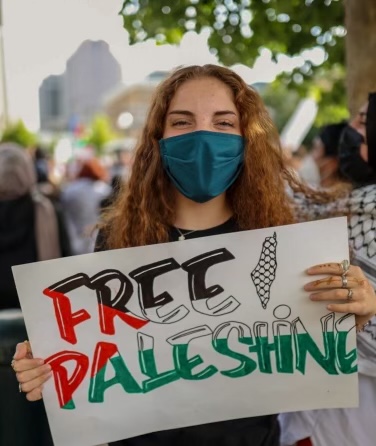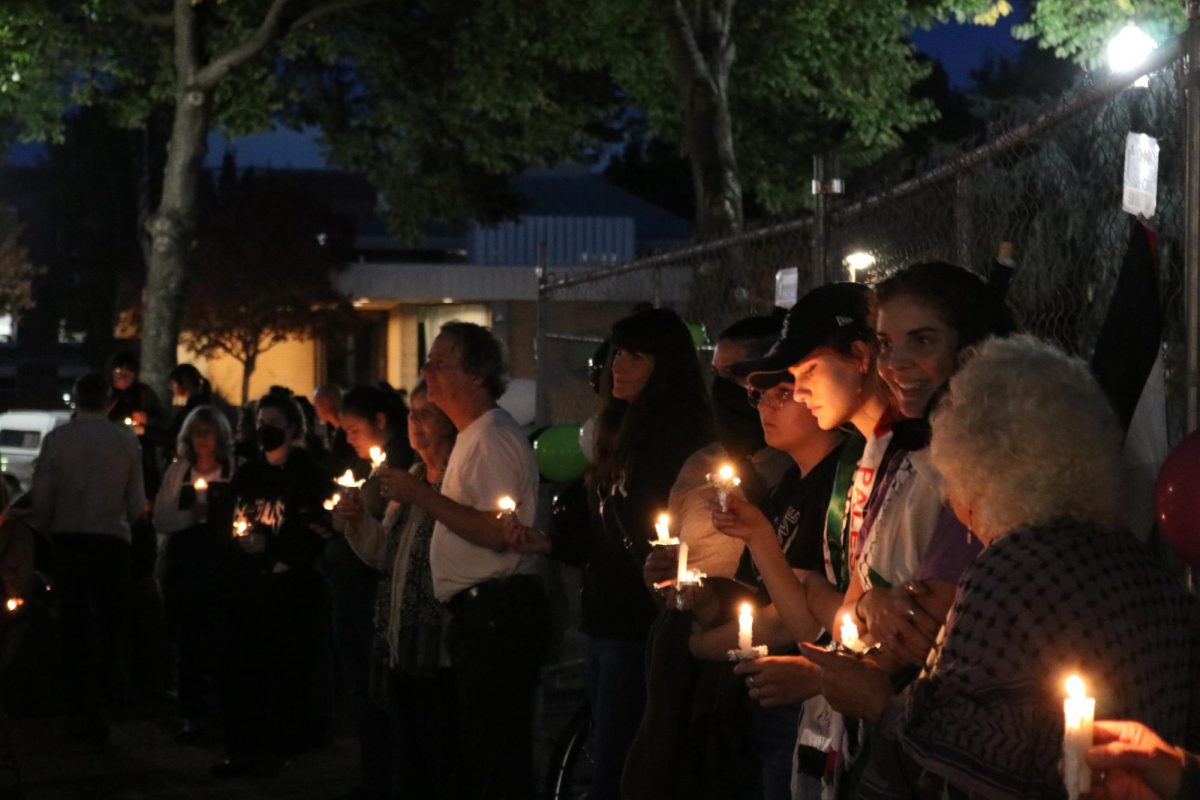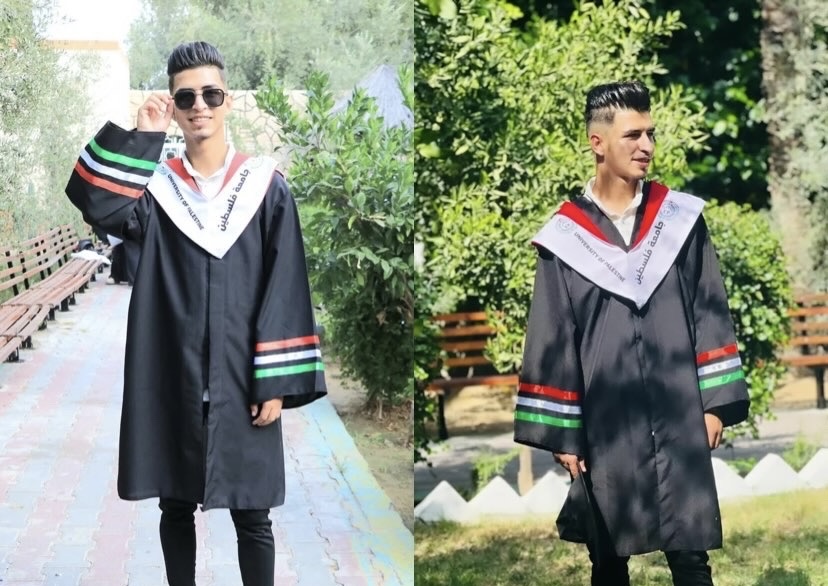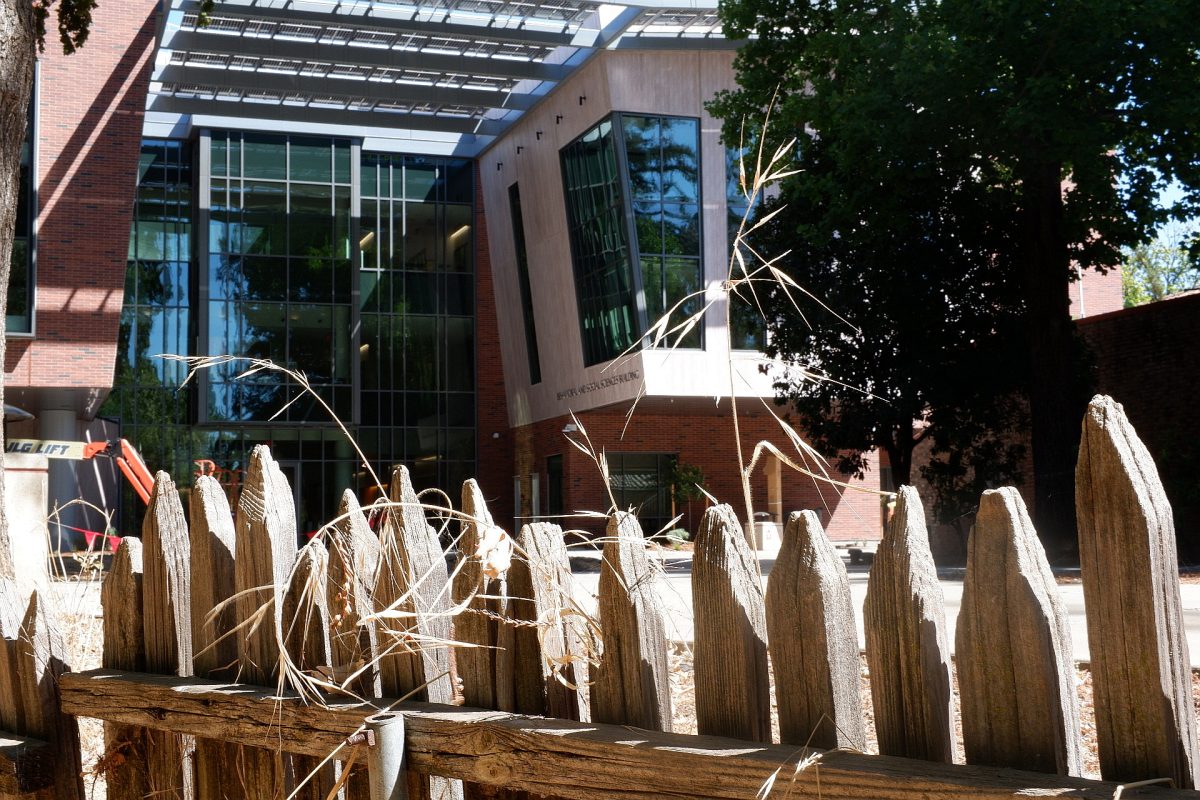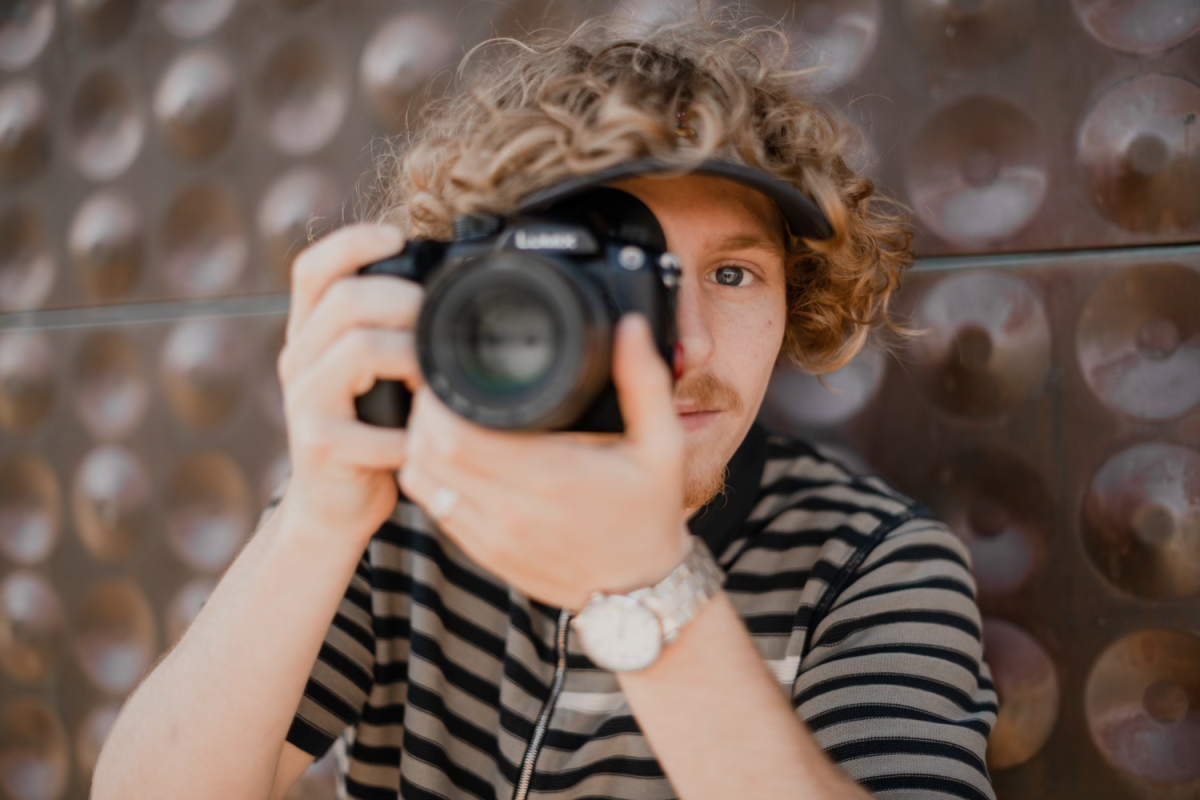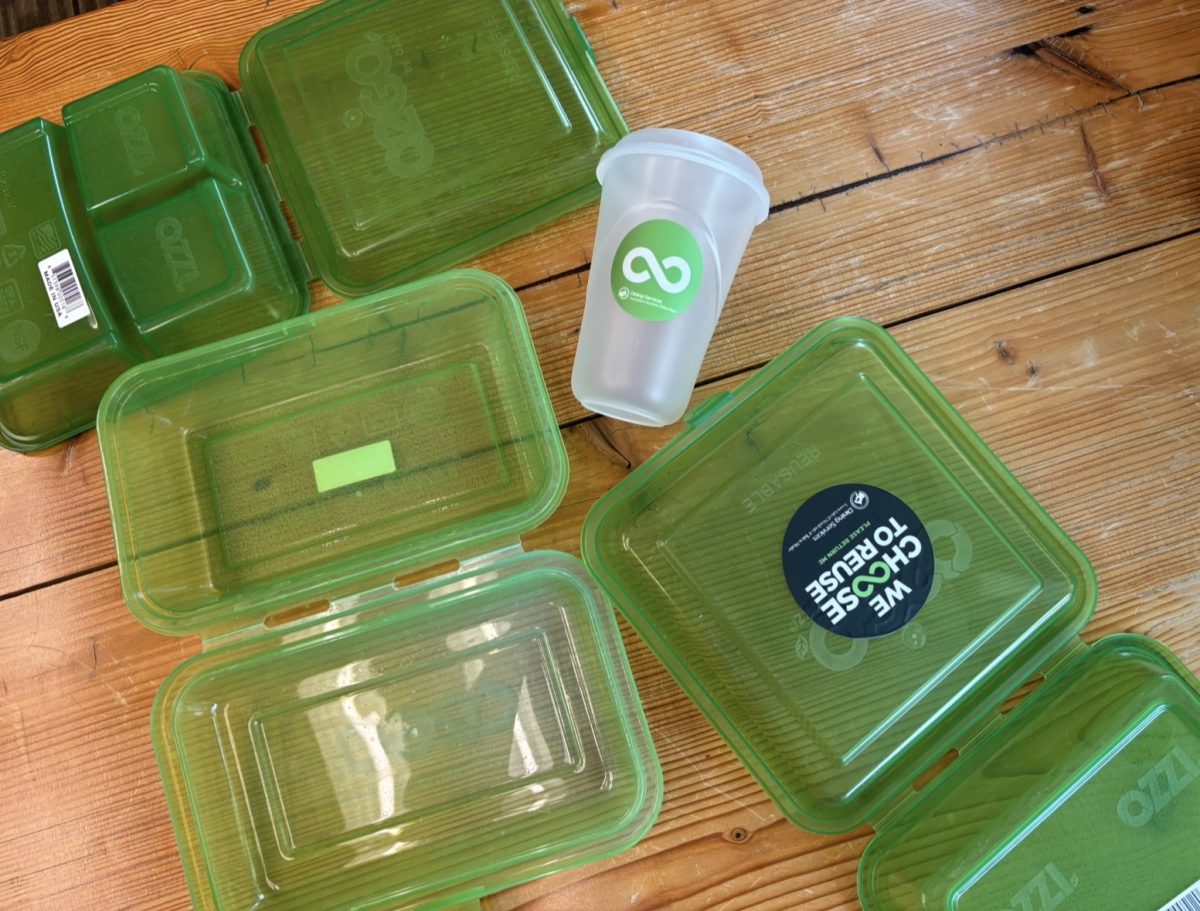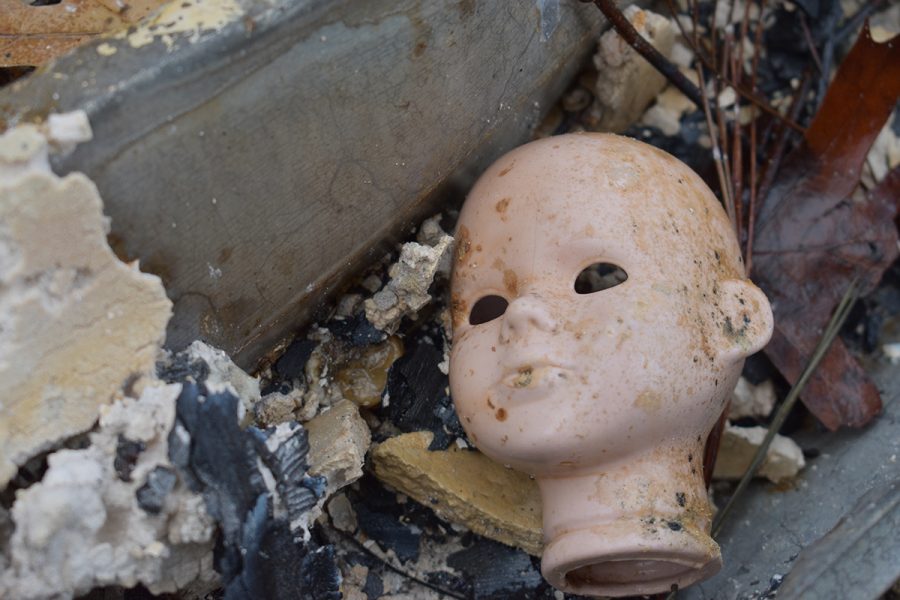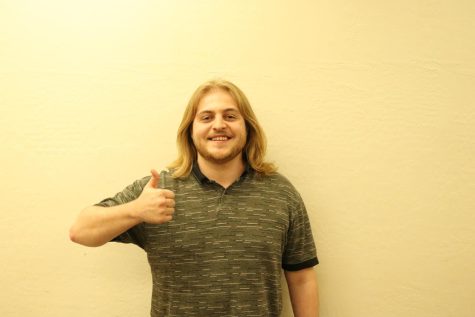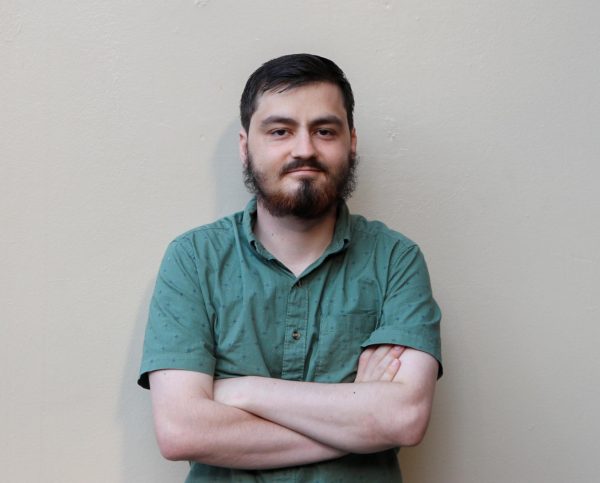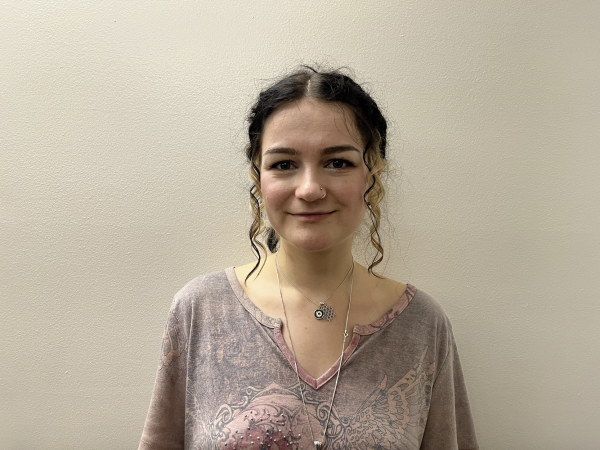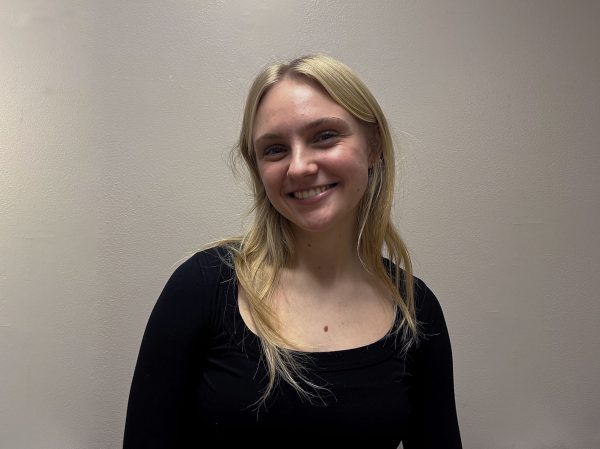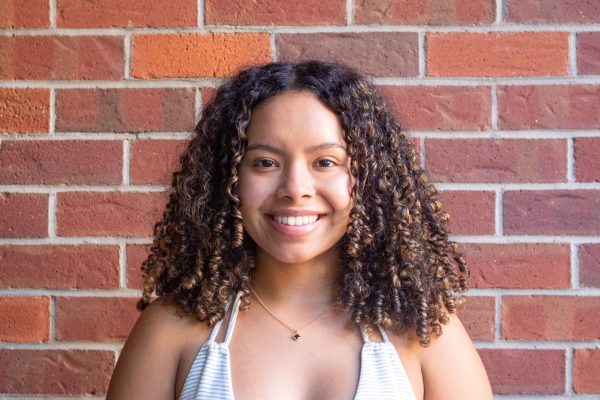The Palestinian Perspective: Chico State Student Hala Saleh
A 20-year-old psychology student with two Palestinian-born parents, Hala Saleh, wants to change the outlook of those around her regarding the ongoing Israel-Hamas war, affecting many civilians.
Her father was 22 years old when he came to America and her mother was only 9. Saleh says she loves the community and food of her culture.
Saleh was told about this conflict since birth from her parents, realizing this has been an issue of contention for many years regardless of what people may perceive as a recent conflict.
She said it was explained within the context of The Nakba, or original founding of the Israeli state in 1948 which displaced masses of Palestinians from their land.
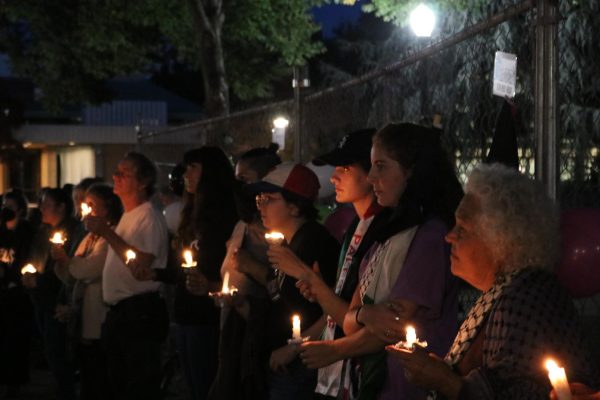
Saleh said when she goes to the West Bank she can see the impacts of this directly with her own eyes.
“It is kind of visual, like you can see there is a wall very clearly. There’s two sides: everybody has the Israeli license plates and then the Palestinian license plates; it is very separated,” Saleh said.
Saleh went on to add, “I was always explained to just the concept of Indigenous people and people that are settlers.”
Saleh felt privileged during her time in the West Bank, saying she was able to travel freely to Israel compared to those in her family who do not have an American passport.
Having been to the Israeli and Palestinian territories, Saleh has a unique perspective when it comes to how people may view this conflict.
“Palestine itself is very poor, a lot of poverty, not as much governmental stuff taking place, not as much police, a lot of pollution and then on the Israeli side it’s a lot more established, industrial, it looks kind of like America honestly. Big city buildings and also the architecture is very different, the homes look very different from each other and you can tell when you are in one area based on like what it looks like housing-wise, or it is clean or dirty,” said Saleh.
With three out of her four grandparents, plus many cousins living within the area, Saleh feels grateful to have her family in a region with less fighting than the Gaza Strip or West Bank regions.
When news of the Hamas attacks broke on Oct. 7, Saleh’s initial reactions included sadness and frustration.
Saleh thinks more can be done for those of Palestinian origins and thinks most of the sympathy has been toward Israelis at Chico State.
For Saleh, the conflict should be viewed within the context of the displacement of the Palestinians for years, rather than the occurrences beginning on Oct. 7 and continuing now.
“I feel like it’s good that there is neutrality. Obviously both sides deserve to be heard and nobody deserves to die more than others but I feel like an Israeli side is being taken a little bit more in the West and in Chico,” Saleh said.
Saleh believes there are misconceptions regarding this conflict within most discourse in the United States.
“Advocating for Palestine is being anti-Semitic and being directly correlated with hating Jews and I would say that is a huge misrepresentation because it is not religion versus religion, it’s not Jews versus Muslims or Christians or anything like that,” Saleh said.
When Saleh sees people saying it is Hamas fighting Israel, that doesn’t paint the full picture of the civilian suffering happening within the region. The Palestinians who are not affiliated with Hamas are collateral damage to a war on terror.
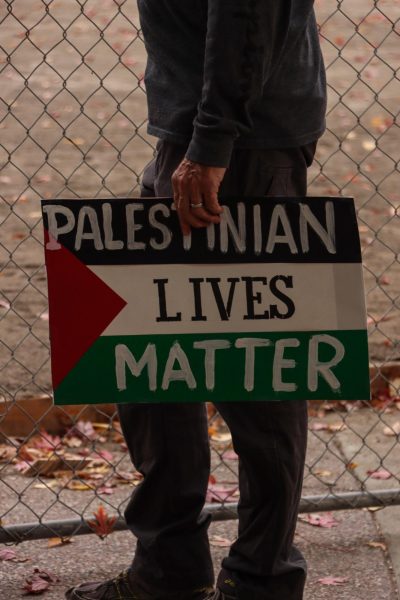
Saleh also added there is silencing of those who speak out in support of Palestine that challenges the American government’s perspective on this war.
“I don’t support terrorism, I don’t support violence, I don’t support the actions that Hamas did but I feel like a lot that of people jump to conclusions and think, like, oh you’re pro-terrorism and it’s like, no, I believe that everyone deserves to be alive,” Saleh said.
In Saleh’s eyes she sees some Palestinians being portrayed as less than human.
“When people think of Palestine they directly associate it with terrorism,” Saleh added.
“Hamas is the face of Palestine for a lot of people that have no context and that is the first thing they hear,” Saleh said.
Saleh believes that the American government’s perspective and aid to Israel helps play a role in what most Americans are believing. Pushing for a cease-fire and an end to the war is the goal for Saleh and she views it as the only way to stop such suffering and death for both sides.
War will lead to the total occupation of the Gaza Strip and West Bank regions in Saleh’s mind.
Within her own perfect world, Saleh would want a ceasefire, two-state solution and the removal of the wall.
“Be able to live peacefully together, Israelis and Palestinians not hate each other and have one land that we could all just live in and everybody be happy and alive and not kill each other,” Saleh said.
In the end of it all Saleh said, “I just want there to be peace eventually.” She highlighted how more than land matters, humanity is the most important thing.
Wyatt Alpert can be reached at [email protected].
The Palestinian perspective: Community College Student Lana
Lana requested The Orion not use her last name.
Both of Lana’s parents are Palestinian, but she grew up in America. She has family in the West Bank, in a small village called Ya’bad.
Lana’s mother grew up in the West Bank.
“As a seven-year-old, she [Lana’s mom] had a gun pointed to her head. They [Israel Defense Force] dragged her by her pigtails to her mom’s house,” Lana said. “My family has been constantly harassed by the IDF, for no other reason than just living in their family home.”
Lana lives in constant fear of what might happen to her family.
“What are my grandparents gonna do?” Lana said.
According to Lana, entering and leaving Palestine is difficult.
“You can’t really come in and out of Palestine,” Lana said. “So they give you a warning that they are gonna kill you but they don’t let you leave. It’s just really frustrating.”
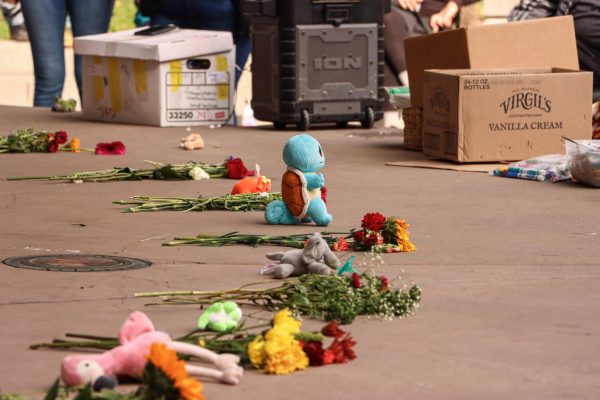
Lana said that her family in Chico have been harassed for being Palestinian. Lana’s mother owns a smoke shop in Chico.
“My mom is a business owner and she’s already been harassed for being Palestinian. People came into one of her shops and yelled at the workers,” Lana said.
Lana said the community of Palestinians in Chico is small.
“If there was a bigger community, I would love that. To feel more of a part of my culture I go down to the Bay, there’s a huge Palestinian community there,” Lana said.
More people have been asking her questions regarding Palestine and Israel recently.
However, the increased attention is like a “double-edged sword,” according to Lana.
“People are dying. Now people are asking questions and I love that. But people are only asking questions because we’re not dying quietly this time,” Lana said.
Lana has seen support for a cease-fire on social media.
“Yes we do need a cease-fire but we also need our land back. We need all the displaced Palestinians to come back to Palestine.”
“It’s like you guys want us to just go back a month where we were just dying quietly. That’s frustrating,” Lana said.
Lana said that calling the conflict between Israel and Palestine a “conflict” is a misconception.
“50% of homes in Gaza have been obliterated. No health care. They don’t have running water and they don’t have a functioning plumbing system,” Lana said. “It’s a genocide happening.”
“The problem is people calling it a conflict because if you can’t defend yourself, how is that a conflict?”
Seeing people mock the people of Gaza is something that angers Lana.
“And there’s other people right next to them. Partying, laughing, and making TikToks about how animalistic and barbaric the other people are,” she said.
Lana said people have reached out in support and she appreciates it.
“But I really am just encouraging everyone to actively educate themselves and then do something about it,” Lana said. “Communicate with your local representatives, your state representatives and push for a free Palestine.”
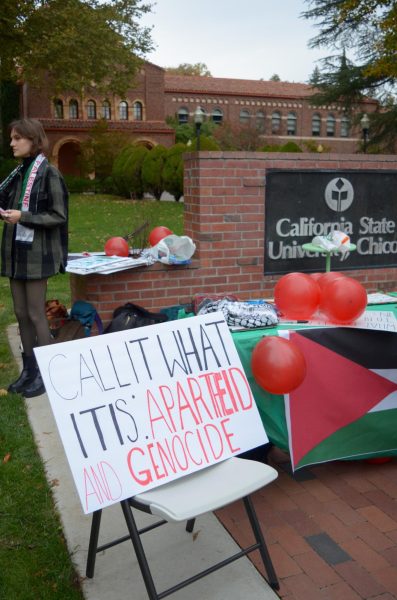
The attack on Palestine has been emotionally taxing on Lana and her family.
“We’re just in like a state of distress because all we can think about is the people that are dying,” Lana said.
“We are just witnessing a genocide. We’re just very overwhelmed and frustrated because we don’t like how the Western media is obviously portraying us as the bad guy,” Lana said. “We just want to spread the word that people are dying and if anyone can do something to help please do it.”
Lana learned about the Oct. 7 Hamas attacks through a text from a friend. Her first thought was, “This is going to be a bloodbath.”
“Honestly, I’m not surprised by what happened. Because if you live in an open-air prison and you’re not able to leave, you don’t think people are gonna rebel? That’s crazy to me,” Lana said.
Lana is also frustrated because of the commonly asked question: “Do you condemn Hamas?”
“If you can’t control your own water, your food, you’re not able to leave. If you want to go fishing you will be shot. I’m sorry, what do you expect when they have to live in a state like that?” Lana said
“‘Do you condemn Hamas,’ why are you asking me that question out of everything that’s happened? Have you condemned Israel for the past 70 years of killing Palestinians?” Lana said.
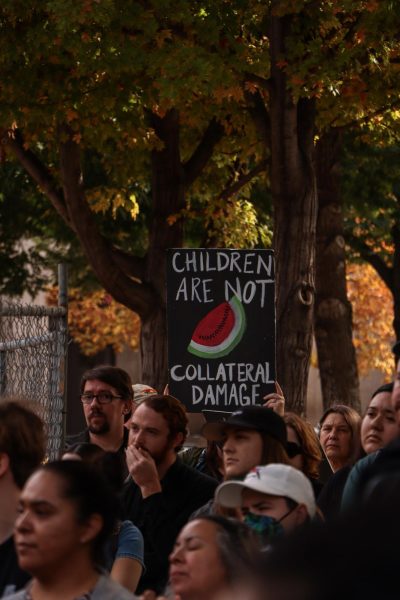
Lana wants people to look at the broader scale of the conflict, not just what happened on Oct. 7.
“Don’t get me wrong, what happened on Oct. 7 was horrible. Death should never be normalized. No one should be hurt,” Lana said. “But I don’t know how else Palestine is going to be able to liberate themselves.”
Lana added that when Palestinians attempted peaceful protests in the past such as in 2018, they got shot by Israel.
She said that she also is not surprised by the support for Israel from the U.S.
“Israel is the only way America has control over the Middle East. Biden said it himself ‘if there wasn’t an Israel we would have made one already,’” Lana said.
“I just am shocked that they are so willing to support a mass genocide,” Lana said.
The phrase “Free Palestine” is important to Lana.
From Lana’s perspective “free Palestine” means that the Palestinians “get their land back”.
“A free Palestine means that they are able to govern themselves. They are not living under military occupation. They are not living under apartheid. They are able to roam freely,” Lana said.
Lana stressed the importance of spreading awareness of the crisis in Palestine.
“I know it’s hard to see but it just gives you more passion and fuel to advocate for the people being oppressed,” Lana said.
To see Orion coverage of local events supporting Palestine click here, here and here.
Samuel Moore can be reached at [email protected].
The Palestinian perspective: Chico State Student Shahd Mustaf
Shahd Mustafa, a mechanical and mechatronic engineering major, has family currently living in Gaza.
“You have to focus on schoolwork, you have to do everything normally . . . but in your mind, it’s like ‘Oh, my family is dying in there and no one knows about it. Look at how the media is representing me,’” Mustafa said.
Mustafa grew up in Cairo, Egypt, and moved to America with her family a few years ago, but her grandparents are Palestinian and grew up in Palestine.
She was raised with the notion that “Palestine is under occupation, but one day hopefully it will be free.”
She has never visited her family in Gaza, but she’s always wanted to. Her family members would often try to visit whenever the borders opened up, but it was a difficult process and sometimes they would be stuck at the border for days.
“My first reaction [on Oct. 7] was, ‘They crossed the border.’ They took the border down, and it’s something they’ve never done before,” she said.
Mustafa said the stress she feels regarding the war isn’t just about having family there. She also struggles with the fact that she feels so disconnected from the war. She finds it difficult to know how to help.
“You can get bad news any second,” Mustafa said.
It is also hard for her to understand what they are going through, when she can simply put her phone down when she is overwhelmed with the news.
“It’s just very hard to grasp sometimes,” Mustafa said.
The war has been especially hard on her grandfather. Mustafa said he sends posts in their family group chat daily about brands to boycott that support Israel.
School Response
In response to the war, Chico State President, Steve Perez, sent out two emails. Both remained neutral on the conflict and encouraged students to respect each other regardless of their religious and national identity.
Mustafa said she respects that the school didn’t take a side and she understands that as an institution they have to remain neutral.
“But I honestly don’t know how to feel about it. Because we know there is a side wronged here. We know there’s a side we should be supporting.”
She isn’t sure about the overall campus sentiment.
In regards to the Associated Students statement on the war, she said, “They touched a little bit on what happened on Oct. 7. But then they really got into deeper how Palestinians are suffering, which I think it made me feel a little bit better.”
Misconceptions
A misunderstanding she sees regarding the war is that Hamas started it, she said.
“I think a lot of people think Hamas is like, a terrorist group. And I don’t want to say that they are, because I think Hamas was created because as a result of what was happening there. It was a group created to defend the people,” Mustafa said.
Mustafa said Hamas was created as a result of the occupation, and noted that they were not there before the occupation.
“I’m not saying what they [Hamas] did was right. I’m just saying what they did was a reaction to what’s happening,” Mustafa said. “If you keep stabbing me in the back, stabbing me in the back, I will have to stab you back one day. I will have to defend myself … I’m not saying that’s right, but it just has to be done.”
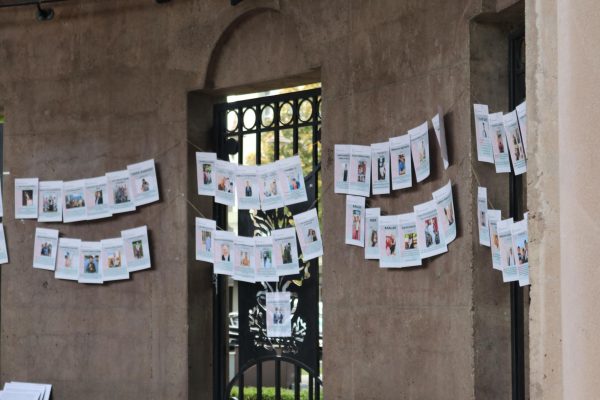
Mustafa said that she sees people on social media pressuring others to condemn Hamas.
“I’ll condemn Hamas once you condemn the 75 years [of Israeli occupation],” she said.
Mustafa is pessimistic about the future. Eventually, Israel will stop bombing, and because it is no longer in the news, and the world will forget about the plight of the Palestinians, she said.
“It’s a cycle repeating, it happens every year. They [IDF] do whatever they do, they kill people, they invade people’s homes and then social media talks about it,” Mustafa said.
Despite her pessimism about the future, she’s noticed some countries giving support for Palestine and it gives her hope.
“It makes me feel seen,” she said.
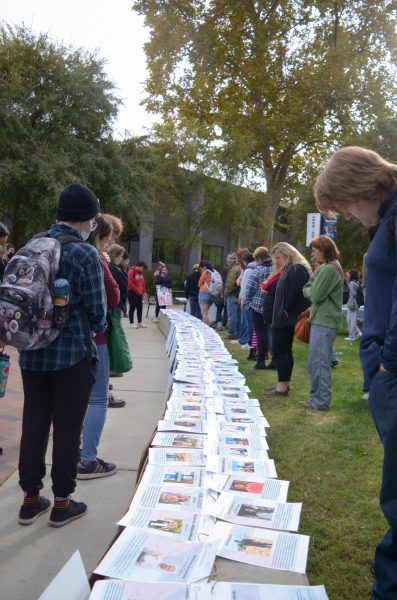
To see Orion coverage of local events supporting Palestine click here, here and here.
Molly Myers can be reached at [email protected] or [email protected]






